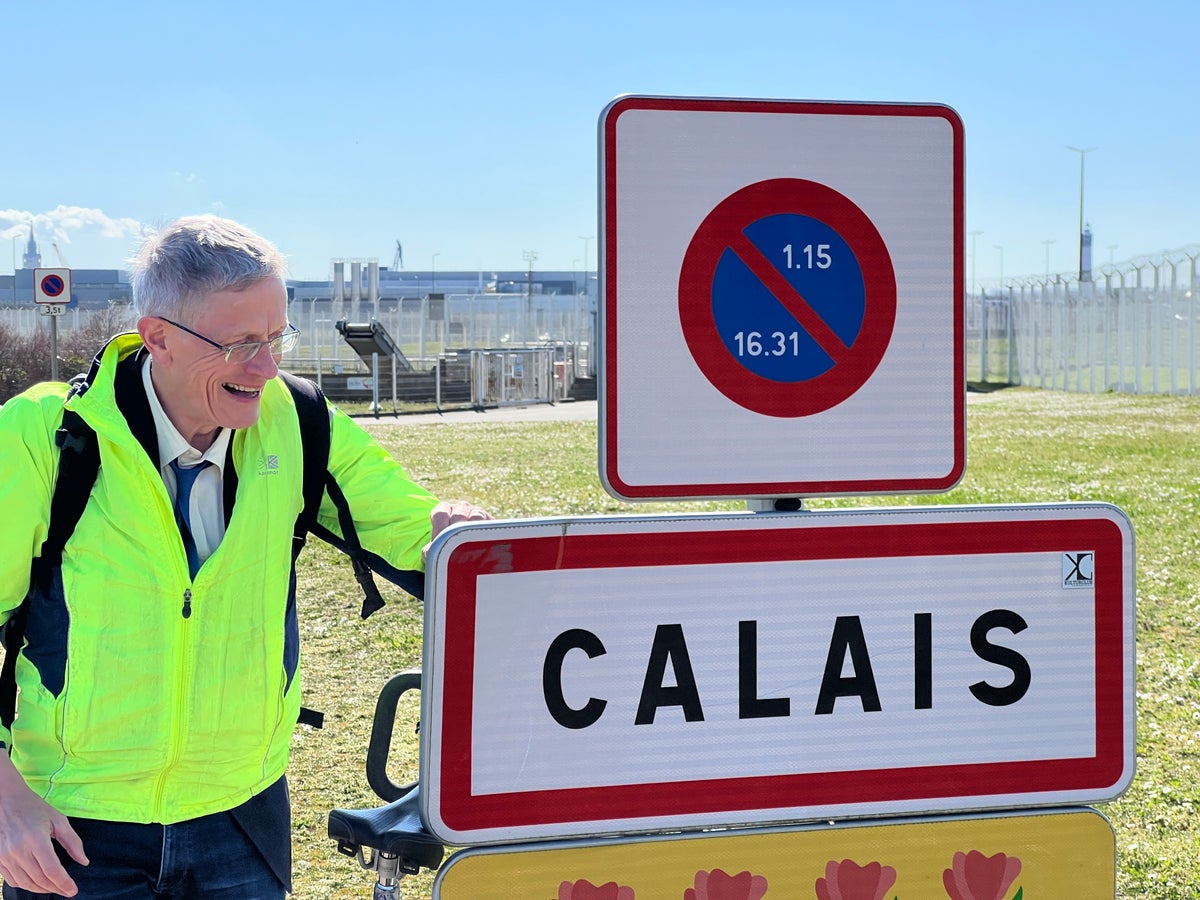
The Cafe de l’Hovercraft, established 1966, stands opposite the jardin Richelieu in the heart of Calais. I like the cheerfully retro name, harking back to a cross-Channel service from another age.
And I particularly enjoy the venue for its dozens of variants of Welsh rarebit, the gargantuan “Yeti steak hache”, and its extravagant hours (10am-1am, daily) for those who arrive in the French port with a Yeti-sized appetite after a long, uncertain journey.
At dawn on Good Friday, the notion that I could dine at the brasserie that celebrates the aeroglisseur seemed implausible.
I was booked to travel on the 9am Flixbus departure from London to Brussels. The previous Friday, tens of thousands of coach passengers had spent many hours stuck in queues at the Port of Dover. And Good Friday promised to be another tricky day.
Service 815 was leaving from Victoria Coach Station, the UK coach industry’s mother ship. As I approached, ferry companies and the Port of Dover were warning online of waits of two to three hours on what was expected to be the busiest day of the Easter weekend.
“Don’t forget to bring food, drinks and entertainment for your journey,” the port’s Twitter feed advised.
Easier said than done. While the journey I was undertaking was not quite as ambitious as Ernest Shackleton’s Imperial Trans-Antarctic Expedition, demand for supplies was so strong that many of the shelves at the coach station’s Pret a Manger were already empty
At least there was no great time pressure. Forget two-hour check-in for flights, or one-hour Eurostar deadlines: Flixbus, which had sold me a ticket from London to Brussels for £61, suggested I arrived a good five minutes before departure. The driver, Hussein, checked my ticket while my folding bicycle – cunningly disguised in a black canvas bag – was stowed in the hold.
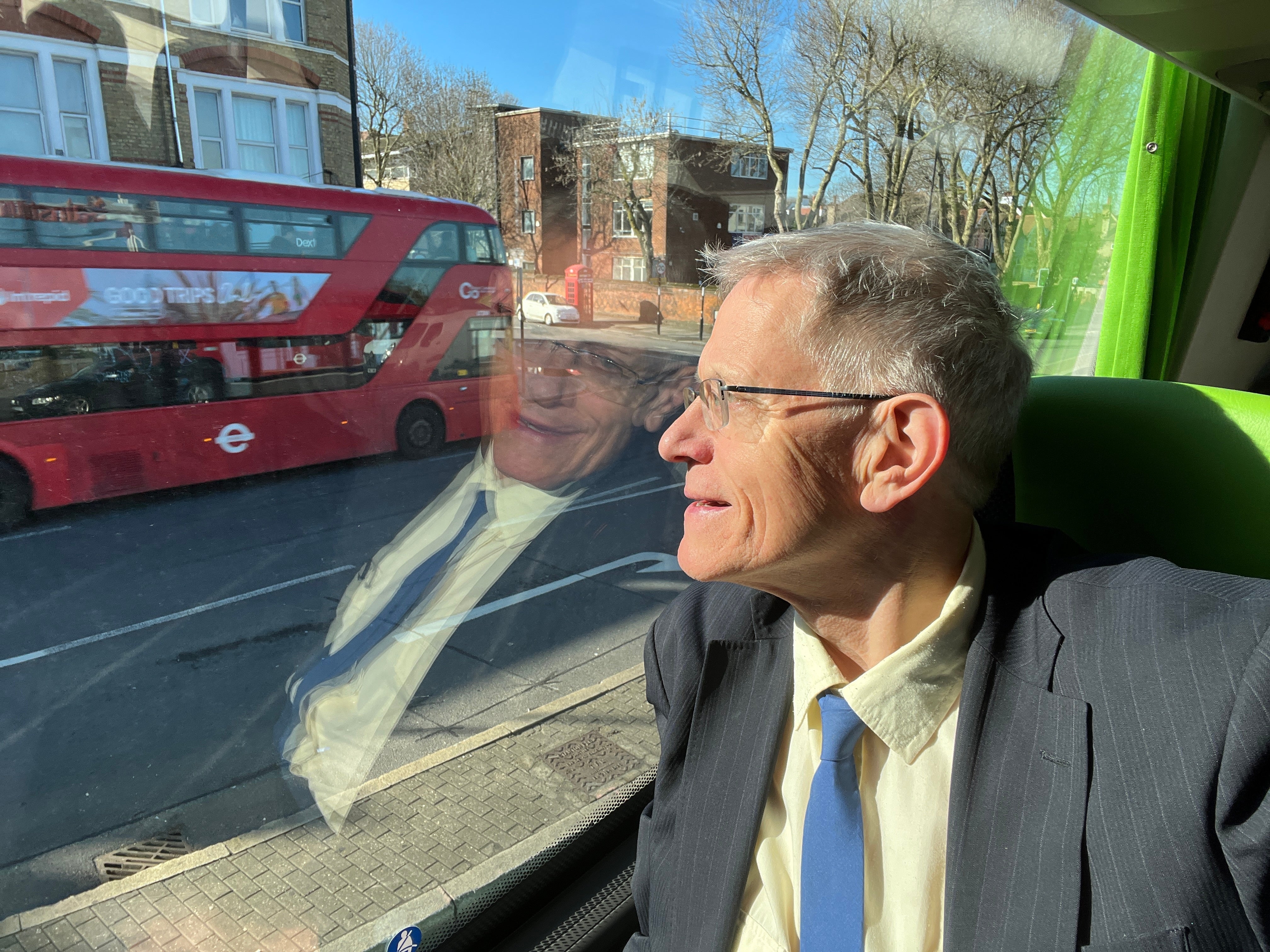
Aboard the double-deck, acid-green Flixbus, I was supposed to be in seat 7A. But it seemed to be occupied, so instead I took 18D – a window seat in the last-but-one row. Our departure was delayed due to a Liverpool-bound passenger discovering – in the nick of time – that he was on the wrong coach. I hope he made it to Merseyside.
Progress through southeast London was sluggish. The coach paused to pick up passengers at Elephant and Castle – at what was once the start of E5 Trans-European Superhighway to Istanbul but which is now merely the New Kent Road/A2 towards Dover.
Of my 50 or so fellow passengers, only a handful were British. A fair few Americans were on board (like me, they presumably found Eurostar fares off-putting), but most were EU citizens. Crossing the River Medway coincided with someone opening an overpoweringly pungent snack, which seems to be infused with weapons-grade garlic. The mood on board darkened.
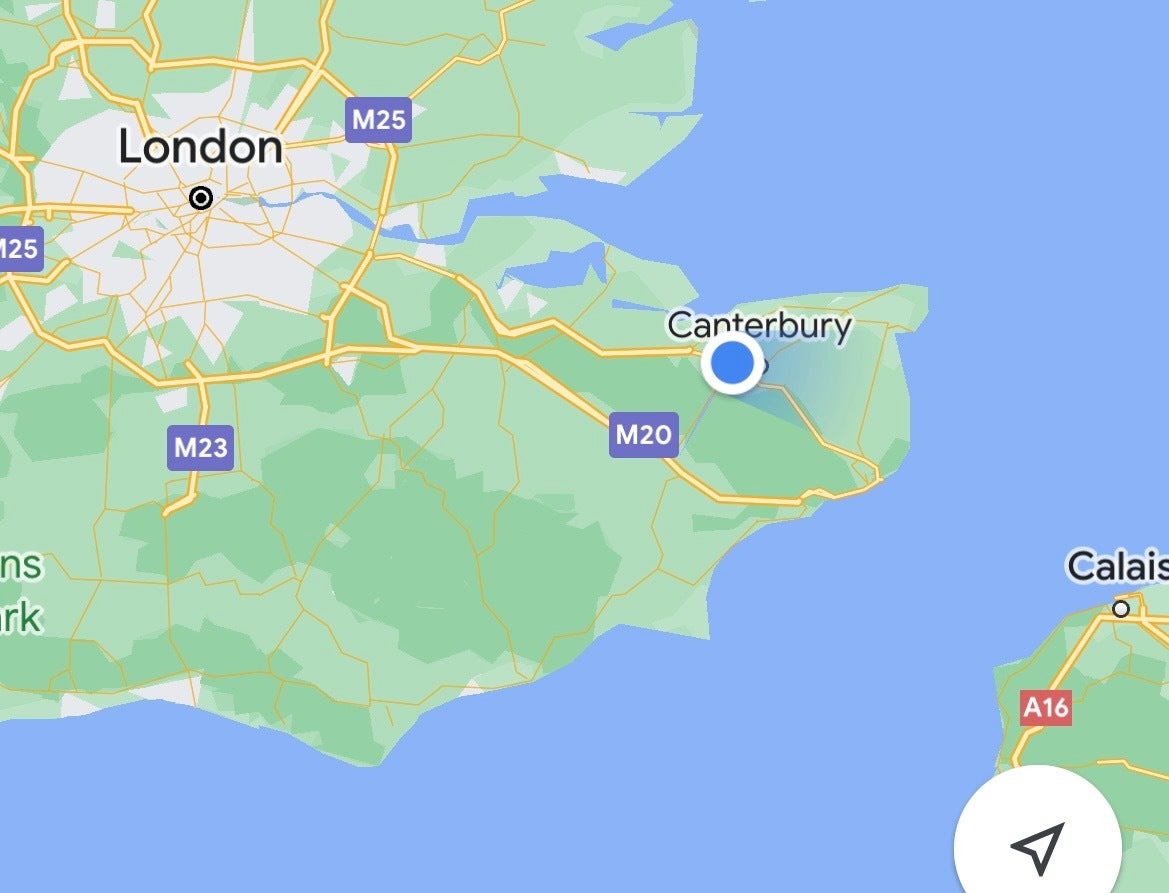
One hour, 45 minutes into the journey, and about seven miles short of Dover, the coach halted in a lay-by so that the driver could collect the “Passenger List”. On a piece of A4 paper attached to a clipboard, all travellers had to complete their details: name, gender, age, nationality.
At the roundabout outside Dover – where Jubilee Way begins its long, sweeping curve down to the ferry port – a police checkpoint directed Europe-bound coaches away from the main road.
The bus stuttered through the town, heading west instead of east. I presumed we were going to the cruise terminal, on the wrong side of town, to complete formalities. But the coach changed its westbound trajectory and instead turned east – directed, amid much whistling by police handling traffic – onto the main A20 approach to the port.
We appeared to have joined the end of an immobile traffic jam. Hussein, the driver, handed out KitKats and water. Yet in an astonishing display of efficiency, presumably, to make up for the pain of coach travellers a week earlier, the line of coaches was suddenly accelerated through the port, past stationary cars and trucks.
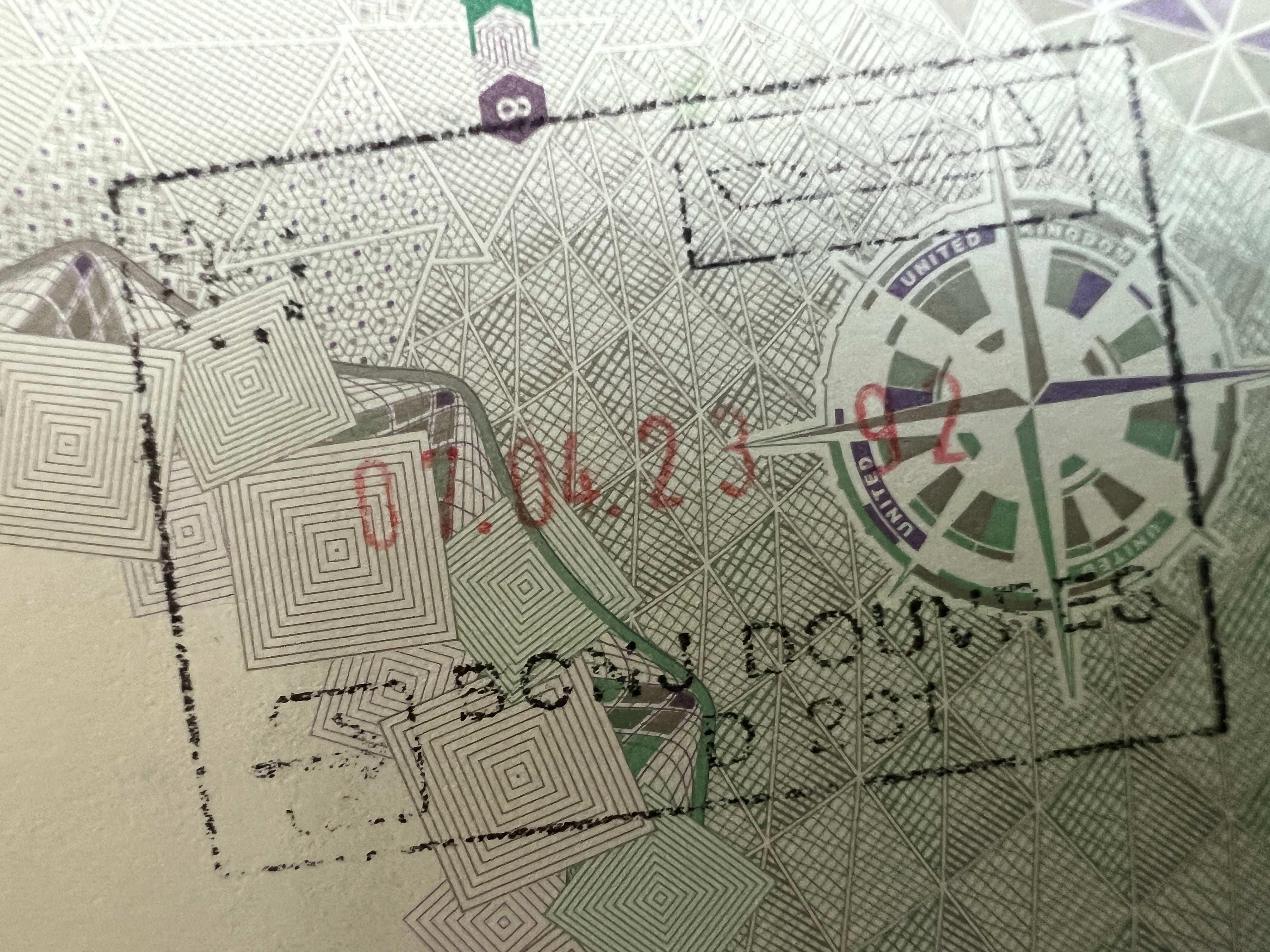
“The Shed” is how Dover’s coach hall is informally known. One bus at a time, passengers are invited to proceed through the hard EU border that is squeezed into the Port of Dover.
On Good Friday morning, the operation was astonishingly efficient. It took the entire coachload of around 50 people on the Flixbus just eight minutes to pass through French border control.
All three desks were staffed: two for European Union and Swiss passport holders, one for the rest of the world (including the UK). The EU queue cleared quickly: the Police aux Frontieres are legally allowed to only conduct a brief verification that the passport is valid and that it belongs to the passenger.
Officers summoned British travellers to the fast lane, where they inspected and stamped passports. Meanwhile, travellers from the following coach were being corralled so that as soon as the final passenger (which happened to be me) was clear, the next group could step forward. We waited for 20 minutes or so in lane 164 to board the DFDS ferry to Calais, during which Hussein handed out meal vouchers. There is such a thing as a free lunch.
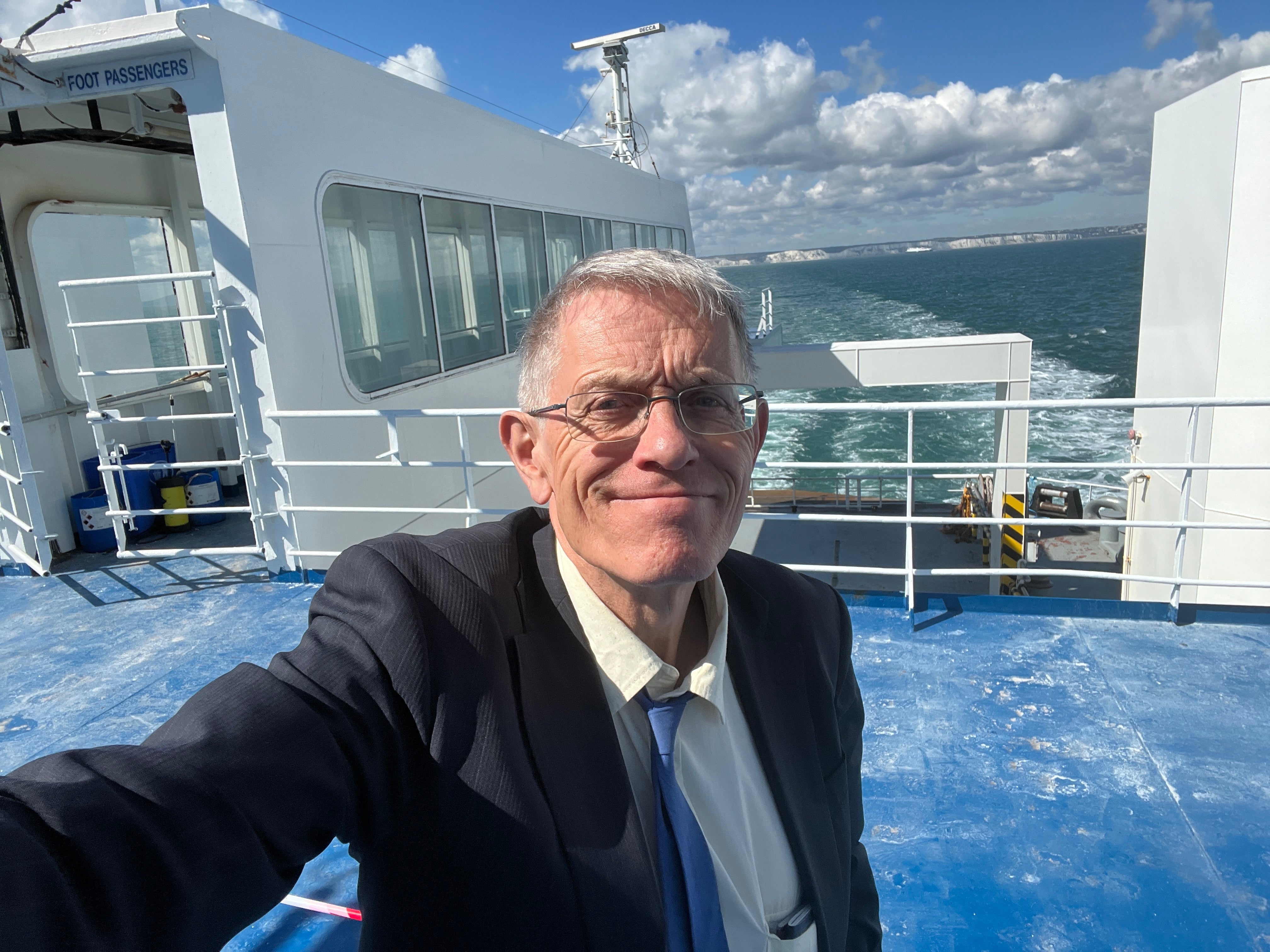
Less than four hours after leaving London, the coach was safely on board the DFDS ferry to Calais. The ship departed on time at 1.15pm. On board, fellow passengers – most of whom were, like me, travelling by coach and ferry – were in an exuberant mood. A rugby squad from Chiswick in west London had set off at 8am today on a trip to the Netherlands. Most of them were dressed as characters from Lord of the Rings.
The DFDS ferry sailed south, almost to Cap Gris-Nez and then east along the shore – remarkably close to the beach and past the town of Calais, to the port. She docked next to Irish Ferries’ Isle of Inisheer and P&O Ferries’ Pride of Kent – both of which are flagged to Limassol in Cyprus.
The Flixbus passengers straggled back to the bus. While I love Brussels, the destination on my ticket, it did not feature in my weekend plans. I was keen to stay in Calais. But the omens did not look good for abandoning the bus.
But I happened to meet the sole cyclist on board. He explained the procedure for debarquement in Calais, which is extremely complicated. Cyclists wait until all the vehicles have left the ship. Then you are escorted by a security detail on a long and complicated journey through the port to the exit. This has to be booked in advance, of course. But with my new friend already signed up, I took a chance and asked Hussein, the ever-friendly and helpful coach driver, if I might retrieve my bike. He agreed, and I became the second cyclist on board.
On the car deck, one of the French deckhands said: “Where did you come from? You didn’t join at Dover.” I explained it was une histoire longue (a long story), and he waved me away with a smile.
The sun beamed down, too. I cycled with my new friend into Calais Ville and bought him a coffee at the Cafe de l’Hovercraft. Just six hours after leaving Victoria Coach Station, I was in my happy place, and figuring out my next move.







